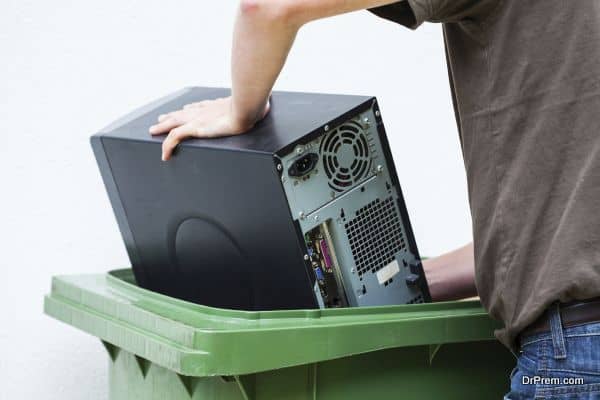Can you imagine living with a toxic waste dump your backyard? Your children playing with dangerous and hazardous remains of TVs, computer keyboards, monitors, GSM handsets, and wireless devices. Laced with deadly chemicals and toxins these electronics are classed as post-consumer hazardous waste, relegated to the rubbish dump and land up in the form of e-waste in developing nations across the globe.
E-Waste
While over 80 per cent of the world’s high-tech waste lands up in land fills in Asia and Africa, Nigeria is emerging as one of the top dumping grounds for toxic, chemical and electronic waste from the developed of the world.
The poor in Nigeria regularly sort through piles of e-waste, burn plastics, break open lead-laden cathode ray tubes (CRTs) from computer monitors, and pick apart electronic waste to scavenge for the precious metals inside. These unsuspecting poor unwittingly expose themselves and their environment to abysmal amounts of toxic hazards thus becoming vulnerable to health risks.
Land Fill
Large parts of groundwater in Nigeria have also become polluted and un-safe for human consumption due to indiscriminate disposal of e-waste. They have contaminated the soil, air, and food also. Chemicals and toxins from e-waste are known to lead to serious health problems like reproductive failures, genital deformities, thyroid malfunctions, behavioural abnormalities and immune suppression.
Nigeria is very seriously falling behind in implementing international environmental treaties as it lacks the national framework policy programme(s) to implement them. So what is the solution? According to Uduma Okeh, Executive Director of Green Earth Preservation Charter (GEPC): while the Government can pass laws to restrict and limit the flow of hazardous substances and discarded electronics into Nigeria, it also needs to ensure that only electronics manufactured by companies who comply with non-toxic components requirement and those with details informing consumers about the chemicals used are allowed into Nigeria. Nigeria’s National Assembly also needs to adopt an e-waste legislation called National Electronic Waste Management Act which would help regulate the disposal of e-waste. He adds that other steps that could prove significant in reducing human and environmental poisoning include:
– a systematic study the discarded waste products in the Nigerian market to assist their appropriate management
– the creation of strategic waste stream banks selection locations and the exclusion of all electronic devices, especially cathode ray tubes from landfills and incinerators
– a massive public education exercise through print and electronic media on the contents of discarded electronics and impact on the environment and health, and how to handle and dispose of them in an eco-friendly way
– a public stakeholder exercise which would include major electronics importers State and Local Government officials, recyclers, retailers, environmental organisations, EU and UN representatives, and G-8 nations representatives, to deliberate on e-waste and how to reduce its incessant flows into Nigeria.



